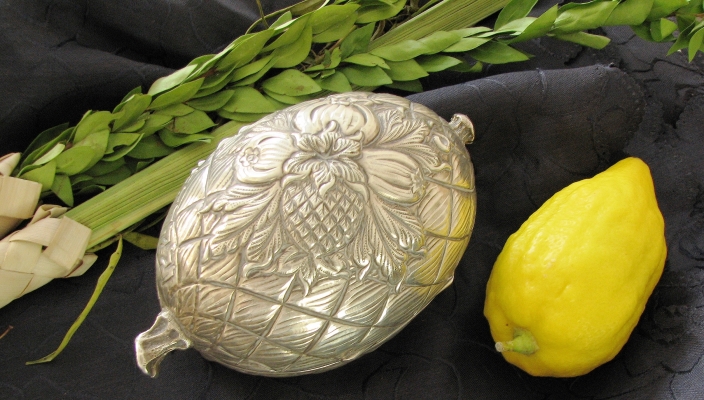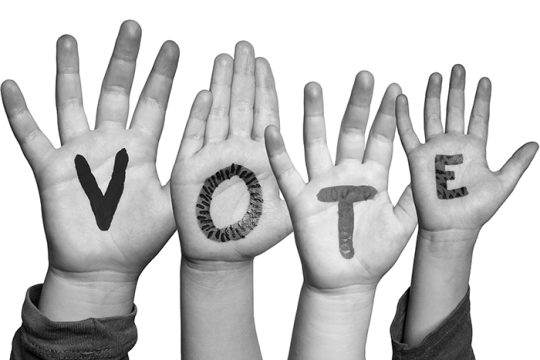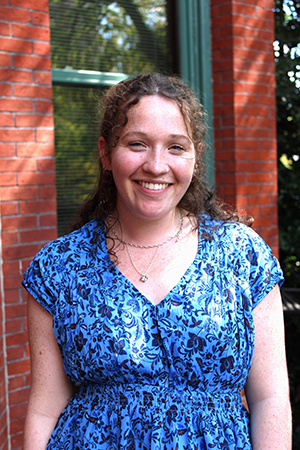
The Jewish holiday of Sukkot is one where we are called upon to rejoice; in fact, it is the only festival where we receive this direct commandment. The holiday is a time to dwell in temporary huts, or sukkot, with open walls and doors, as we invite our communities and loved ones inside to rejoice with us. My recent move to Washington D.C., the beginning of my Eisendrath Legislative Assistant Fellowship at the Religious Action Center (RAC), and the arrival of Sukkot have helped me reflect on my own community and how grateful I am to have so many people and places that feel like home.
While this feeling makes me eager to rejoice and celebrate with my new community, I am also thoughtful of those who may not easily find such welcoming communities. I especially think about this as it relates to my new policy portfolio, which includes immigration justice. As I have delved deep into learning about the American immigration system, I have quickly seen the harmful rhetoric that surrounds much of the immigrant community. I have learned about how policies welcome and provide a community for those in need of one, but also the harm they cause for many.
Just this week, I came across two articles that put in perspective the deep flaws present in our immigration system, and the struggles immigrants, especially immigrant youth, face once in the US. I read about Najeeb and Atefa, an Afghan couple with a child who suffers from a rare, severe skin condition. They are working to get special immigrant visas for their family but have been forced to jump through a variety of bureaucratic hoops. Najeeb's family was denied humanitarian parole, denied special visas, and denied refugee status, all because of security vetting errors. Their family's case remains unresolved, as Najeeb awaits a review of his recent refugee denial. This story reminds me of the importance of legislation such as the Afghan Adjustment Act, which would allow certain Afghan evacuees to apply for permanent status.
Another New York Times piece titled "The Kids on the Night Shift" covers the story of a 14-year-old, Marcos Cux, a Guatemalan immigrant living in Virginia. His story, like many others, is one of a teenager working full time at a chicken plant to support his family back in Guatemala. Recent investigations have exposed large populations of migrant children like Marcos working in similar plants, a clear violation of child labor laws. Many of these children are exposed to toxic chemicals or are severely injured on the job but must work to support their families at home. These children often work a full night shift, since they must attend school in the day. The reality these children live in is complicated and sheds light on the pressures children face when their families are unable to enter the US. The lack of accessible paths to asylum and citizenship force families to send their children to the border alone, where they then must adapt to American society, attend school, and work to help financially back home. Even children who entered the US with family face deportation threats and difficulties working and attending school, despite having lived in the US from a young age. This problem persists because Congress has repeatedly failed to pass the Dream Act, legislation that would provide permanent protections and a path to citizenship for undocumented immigrant youth.
Reading these stories is difficult , but eye-opening, in that they put faces and names to the policies I hear about and make the immigration system more than just one of numbers and political faces. This is especially important around this time of Sukkot , when we emphasize human connection and community. Amplifying stories like these is crucial as we work to create welcoming communities across our country.
In Leviticus (23:42), we are told to leave our houses and dwell in Sukkot for seven days , as a reminder of how the Israelites lived after leaving Egypt. This commandment reminds us to remember the feeling of being without a permanent home, a reality that many in and outside the US face. Without clear and accessible paths to citizenship and asylum, families like the Nasiris are forced to remain in places away from home, without an idea of when they will be somewhere permanently. Children like Marcos must work to support their families from far away, since they are unable to enter the US with him. By dwelling in sukkot, we take ourselves slightly away from where we are comfortable, helping us to understand this reality that so many live.
The Mishnah also tells us that we should bring our "beautiful vessels… and bedding" into the sukkah ( Mishneh Torah, Shofar, Sukkah and Lulav 6:5-7). There are also strict rules for how a sukkah should be built, including the need for one or two walls to be formed by human hands. This emphasis on human formation stretches beyond just the building of a sukkah, pushing me to think about the importance of human work in creating a just world. As Jews, it is our responsibility to create holy spaces, like sukkot, in this world, and this is only possible if all of us commit to doing the hands-on work. We must amplify the voices of immigrants, remember the richness and beauty immigrants (including those within our multiracial Jewish community) bring to the United States, and in turn work to create an immigration system that is just and humane.
This Sukkot, as we both rejoice and work to create sacred spaces that welcome all, we urge Congress to advance legislation that will help build a more just and compassionate immigration system. Take action this Sukkot by urging Congress to pass the Afghan Adjustment Act and the Dream Act.
Related Posts

Kosher Feijoada: Reflections on Latin Heritage Month and Sukkot

Securing the Vote

